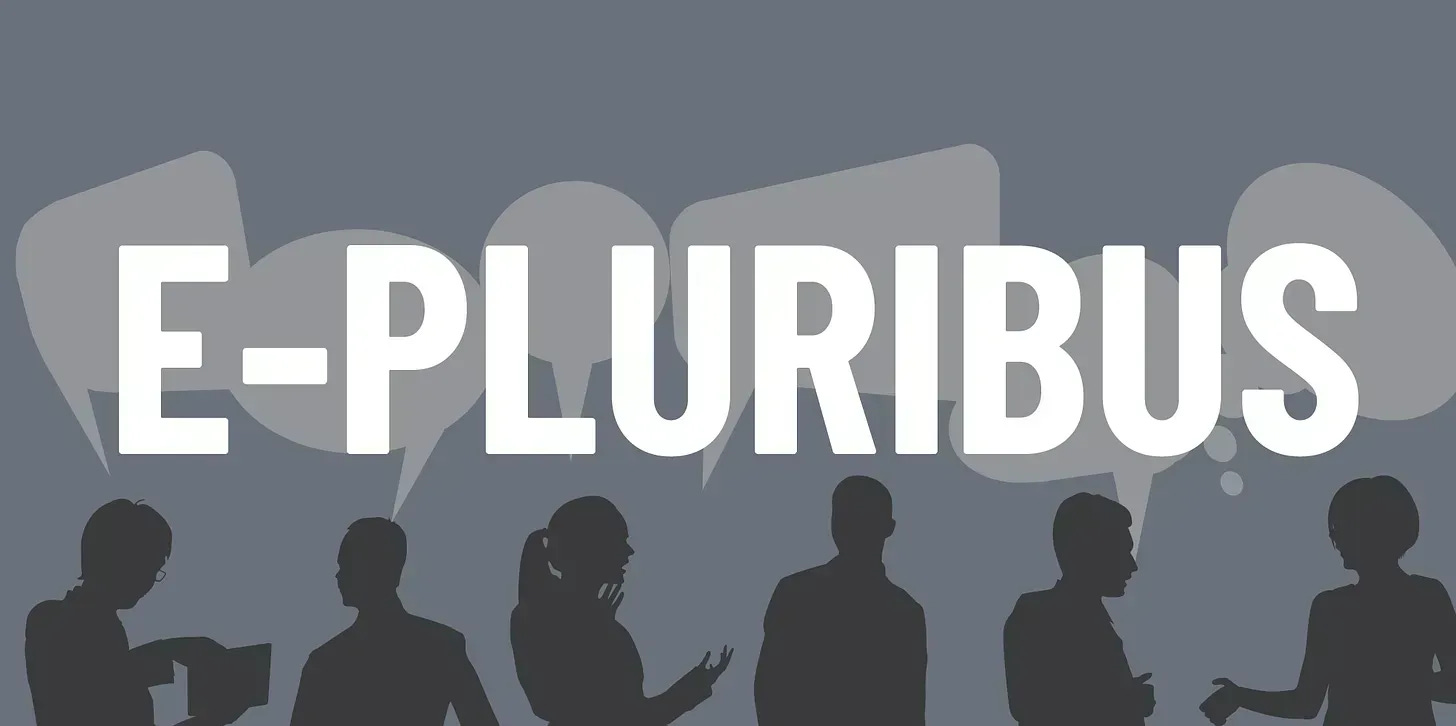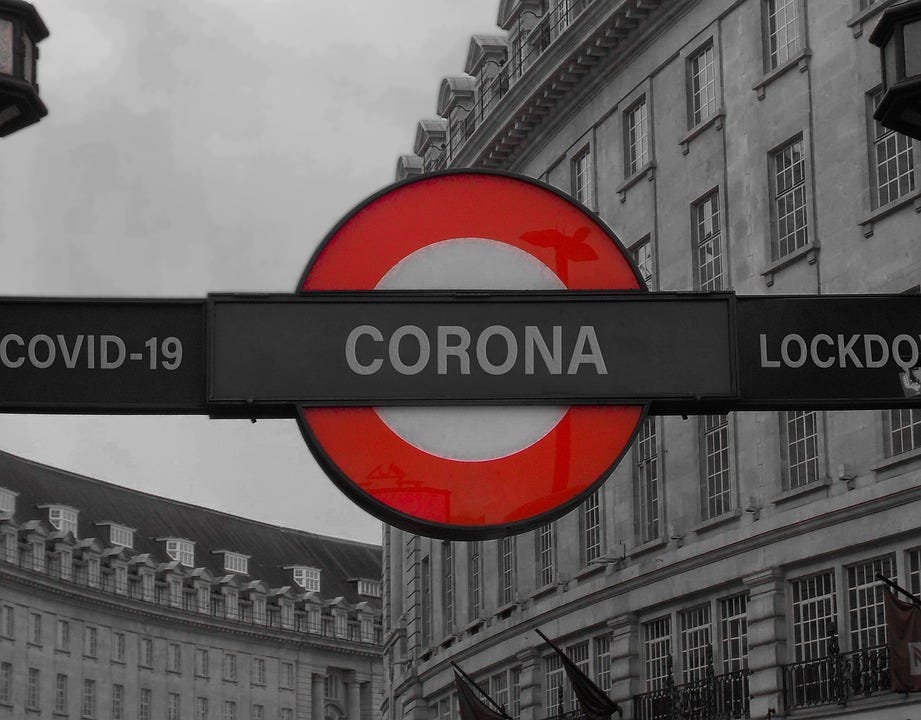E-Pluribus | March 24, 2025
The case for right-wing DEI; Duke's 'checkbox' free speech policy; corporate cancel culture lives
A round-up of the latest and best musings on the rise of illiberalism in the public discourse:
Megan McArdle: Abandoning DEI won’t fix academia’s left-leaning problem
Conservatives are celebrating the demise of college DEI statements as a major victory for free speech and ideological diversity. Megan McArdle at the Washington Post says the right’s celebratory mood is unjustified. If we really want to diversify academia’s intellectual monoculture, we need schools to actively recruit conservative students and make a place for them. If that sounds awfully similar to DEI, that’s because it is:
The diversity statement’s demise is a reminder that though the Trumpian remedy may be excessive and destructive, it aims to cure a real problem: These statements were often political litmus tests, one of many ways academia delivered the message “no conservatives need apply.” The intellectual monoculture this promoted was prone to groupthink and a political liability for institutions that depend heavily on public support. No one should be sorry to see them go.
…
Imagine yourself as a university president desperate to diversify your school ideologically. You’d want to convince prospective graduate students and faculty that your campus is a welcoming place for people like them, not a progressive hothouse where they’ll be left in the cold. Stern memos would warn professors of the importance of making their conservative students and colleagues feel included, and you should probably create a special campus center for conservatives where they can just relax and be together, without having to continually spell out everything they believe from first principles. It might be worth conducting training, too, where your left-wing faculty are exposed to the basics of conservative thought so they won’t accidentally say something offensive.
While you’re at it, revamp your brochures and website to highlight the great times conservatives are having on campus. (I’m imagining three laughing young men striding across campus, copies of “Free to Choose” and “The Conservative Mind” tucked under their arms.) It would also be smart to create some scholarships aimed at pro-life or MAGA students, to ensure enough critical mass to form a community. Armed with these materials, you can begin an aggressive outreach program to the places where conservatives are likely to be found, such as home-schooling communities and smaller religious schools. And when you’re deciding between a conservative candidate and yet another progressive — well, shouldn’t the conservative candidate get a little “plus factor”?
This thought experiment isn’t just a warning to conservatives to think bigger. It’s also a reminder that for all its excesses, DEI had its heart in the right place. Universities should want to “look like America” — ideologically, economically and, yes, racially. Building that kind of community from a country of 340 million wildly different people takes a lot more work than formally announcing you won’t discriminate.
Sherman Criner: Why I Started A Free-Speech Magazine at Duke
Duke University student Sherman Criner seems to understand the thinking behind McArdle’s call to action. A junior studying political science, Criner recently established a campus magazine dedicated to promoting free inquiry. He says the new publication is necessary at a school that merely pays lip service to intellectual diversity, checking a box to keep everyone sufficiently pacified:
In reality, [universities] have largely failed to cultivate an environment where civil discourse can organically flourish. Instead of fostering a culture of intellectual rigor where the best ideas win, they settle for performative gestures that keep everyone comfortably in line. If this sounds familiar, it’s because universities such as Duke have been running the same tired playbook for years—addressing historical racial discrimination with cosmetic fixes, as if renaming buildings and creating bureaucratic diversity offices will magically undo deep-seated problems.
Now, they apply the same strategy to free inquiry: Roll out a few initiatives, check the “intellectual diversity” box, and call it a day.
Despite these challenges, many others in the Duke community and I refused to accept that civil discourse is impossible or that ideological orthodoxy must be the default state of university life. That is why I co-founded The Lemur: Duke’s Big Ideas Magazine—to challenge prevailing narratives, create a genuine platform for intellectual engagement, and prove that meaningful dialogue can and should thrive on college campuses.
To understand why The Lemur is necessary, one must first understand the shortcomings of Duke’s intellectual environment. While occasional efforts showcase ideological diversity, there is little institutional will to foster authentic ideological engagement. The problem is a lack of conservative voices and a broader unwillingness to cultivate genuine debate.
Jennifer Sey: I just got kicked off a ‘diverse thought’ panel for wrongthink: Corporate DEI lives on
Perhaps universities are beginning to reckon with the ill effects of their ideological intolerance. But corporations remain in denial. At the New York Post, former Levi’s executive Jennifer Sey recounts her latest cancellation—yes, there’s been more than one—in which she was disinvited from an HR conference for promoting wrongthink about COVID-19:
Woke capitalism is alive and well.
Don’t be fooled by American companies’ public statements suggesting they’re abandoning identity-based diversity, equity and inclusion policies in favor of merit and diversity of thought.
I’m here to prove it: I’ve been canceled. Again.
This time, bounced from a conference boasting a theme of “breaking down walls.”
Five months ago, Peer 150, a networking group for top human resources executives, asked me to speak at one of its events.
I was pleasantly surprised: I’m pretty well known at this point as being aggressively non-woke.
In 2020, I was the only C-suite executive in a major Fortune 1000 company to push back against lockdowns and school closures during the pandemic.
I resigned from Levi’s, a company I’d worked in for 23 years. And then I was banished from all of corporate America for my disobedience.
…
So the invitation to air my heterodox views at such a mainstream conference was shocking — but a hopeful sign of change.
The invitation-only Peer 150 conference brings together 800 HR leaders from companies like NBC, Ikea, REI and Universal Music Group to listen to experts’ presentations and discuss pressing corporate issues.
Apparently, diverse thoughts are triggering to this audience. Last week I received a call from a Peer 150 co-founder. I’ll paraphrase: Since going live with your name on the conference agenda, he said, we’ve gotten complaints.
Some members said they won’t come. Some threatened to cancel their memberships. Some even suggested they’d pull their companies’ sponsorship of the event.
…
On Tuesday, I got [the organizer’s] cowardly email canceling my appearance.
“While we always aim to push conversations forward, we also recognize that our responsibility is to create a space where people feel valued and supported,” he wrote. “I just don’t feel like Portland is quite ready for you.”
“Again, I feel horrible and personally think the discussion would be very insightful, however I also feel as though we need to support our community.”
“Support our community.” “Valued and supported.”
These people are spineless.
Around Twitter (X)
The Foundation Against Intolerance and Racism (FAIR) chastises New York governor Kathy Hochul for clamping down on free speech to stem antisemitism. Fighting bigotry is a noble goal, FAIR acknowledges, but doing so at the expense of the First Amendment is unacceptable.
Chris Rufo has no tolerance for people who say it’s undemocratic to make Columbia (or any other university) protect public safety. It’s the least taxpayers deserve for investing so much money in higher ed:
Finally, the Foundation for Individual Rights and Expression (FIRE) reminds the world that abandoning free speech leads to some very dark places:









